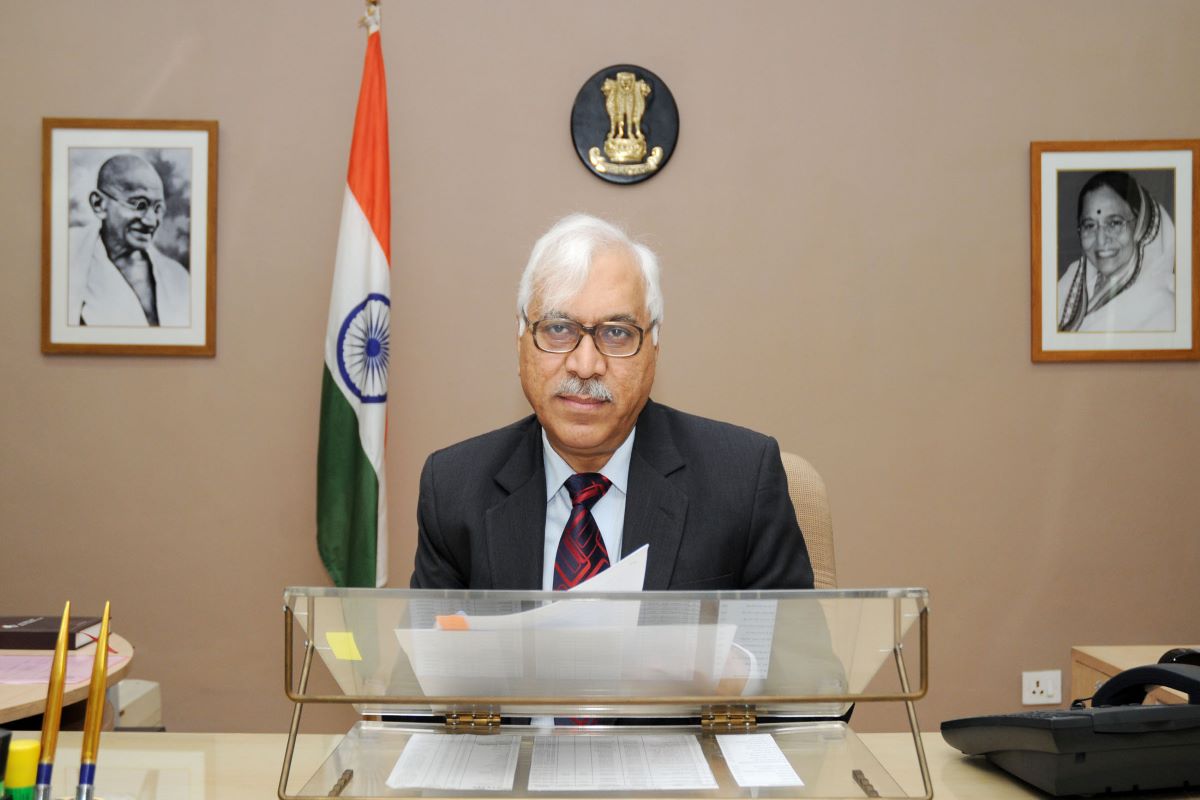Dr S Y Quraishi served as the 17th Chief Election Commissioner of India – from July 2010 to June 2012. An IAS officer of the 1971 batch, Quraishi holds a doctorate in communication and social marketing. He is known for expressing his opinion freely and fearlessly. As CEC, he launched many electoral reforms, including the introduction of EVM and VVPAT mechanisms to address issues raised by various political parties.
He had also planned and supervised several state assembly elections and launched voter education drives and expenditure monitoring divisions in the Election Commission of India (ECI). As a prolific writer, he has written several books, including ‘An Undocumented Wonder – the Making of the Great Indian Election’, which describes the enormity and complexity of Indian elections. In an interview with Vijay Thakur, Quraishi talks about the ECI’s roadmap and the challenges faced by it in holding elections in the midst of the pandemic.
Q. India is passing through the third phase of Covid-19 pandemic. Do you think going for assembly elections at this juncture is a right decision or should the polls be postponed?
A: See, there is no provision to postpone elections in the Constitution except in three situations: if there is an armed rebellion, an external aggression or if the country is facing a war-like situation. Nothing of this sort is happening in the present scenario. So this is what the Constitution says. Let’s now take it on merit. It is a fact that the third wave is very contagious and spreading very fast. However, our past experience shows that it is not as serious as the first and the second wave were. In earlier waves we knew little about the virus. Today we have vaccines and drugs to fight Covid-19 and more than half of our population has been vaccinated. Besides this, the Election Commission has already laid near perfect Covid-19 guidelines. It has already successfully conducted assembly elections in big states and that too at a time when the first and second waves were going on.
Today, the ECI has experience of conducting elections and has prepared a robust mechanism for smooth functioning of the system. On top of it, more than 100 countries in the world have already conducted elections during the Covid-19 pandemic. By now we all have learnt to live with Covid-19. The entire world is trying to lead a normal life by following Covid-19 guidelines, they are going out to markets, hotels, traveling and doing their daily business as usual. If all this can happen, why not the elections? I personally do not see any logic in postponing the elections.
Q. From our previous elections, especially after the West Bengal assembly polls, we experienced a surge in Covid-19 cases. Don’t you think we might see a similar surge, mainly in Punjab and Uttar Pradesh?
A: There was a surge in West Bengal after the state assembly elections. This was apparently because public rallies were allowed and there were huge gatherings during campaigning, padyatra or roadshows. However, the ECI appears to have learnt from its earlier experience. Unlike West Bengal where public rallies were banned at the last hour, the ECI has banned all public rallies from the very beginning and told officials and political parties to follow stringent norms during campaigning and electioneering. I personally wish the ECI to be very strict on adherence of Covid-19 guidelines. If the ECI is strict from the very beginning, the political parties and its ground level workers would not dare to violate the guidelines. I hope what happened in West Bengal will not be repeated in the five states going to the polls.
Q. Because of Covid-19, the campaigning is mostly being done online making use of social platforms. Initial reports suggest lots of ‘money’ is flowing through this channel. How do you suggest keeping a check on ‘money power’ and also the money distributed through illegal means to woo voters?
A: The Election Commission has been stressing on ‘zero tolerance’ towards the abuse of money power, but the fact is that money power does exist and it is no secret. As regards the use of money to influence social media, people would certainly use social media to influence voters using money. But it is easier to quantify money spent on online promotion or through social media than money spent in a public rally. There are laws to prevent the use of black money in elections, but people find ways to escape.
Election Observers are on top of their jobs and must be keeping a check on paid news, or paid promotion on social media. The distribution of money, gifts or liquor to woo the voters works through a very organized channel. They start making a network to bribe voters weeks before the polling. So it is not very easy to catch the culprits. In my book, I have mentioned more than 40 modus operandi adopted by various people to bribe voters. That was almost 10 years ago, now they must have found many more ways. They keep exploring new modus operandi to dodge EC observers.
Q. What about the use of ‘muscle power’ in elections?
A: Muscle power is virtually nonexistent in India. Rather it no longer exists during polling. The kind of booth capturing we used to see in Bihar in the early 1990s no longer exists. It is one of the biggest achievements of the ECI that it managed to eradicate muscle power. Effective deployment of election observers has curtailed the misuse of power and money to a great extent. However, there is still room for improvement in every system. And the Election Commission keeps improving and innovating its strategy to deal with anti-social elements.












